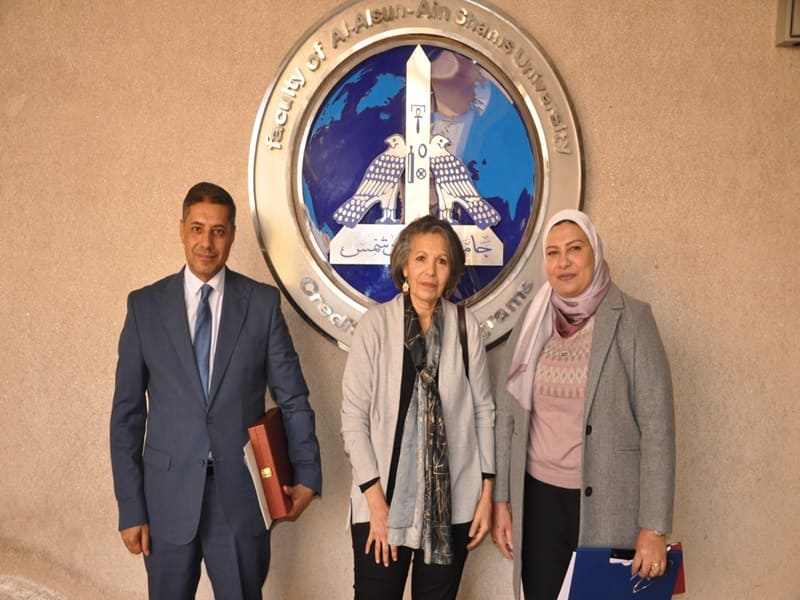A general lecture by Dr. Mona Baker at the Faculty of Al-Alsun entitled “Paratexts: Theory and Methodology”
Prof. Salwa Rashad, Dean of the Faculty of Al-Alsun at Ain Shams University, opened the activities of the general lecture organized by the Graduate Studies and Research Sector at the faculty under the supervision of Prof. Ashraf Attia, Vice Dean of the Faculty for Postgraduate Studies and Research, entitled “Paratexts: Theory and Methodology,” which was presented by Prof. Mona Baker, Professor of Translation Studies at the University of Oslo, in the presence of a large number of scholars, researchers and professors in the fields of literature, criticism, linguistics and translation from various Egyptian universities.
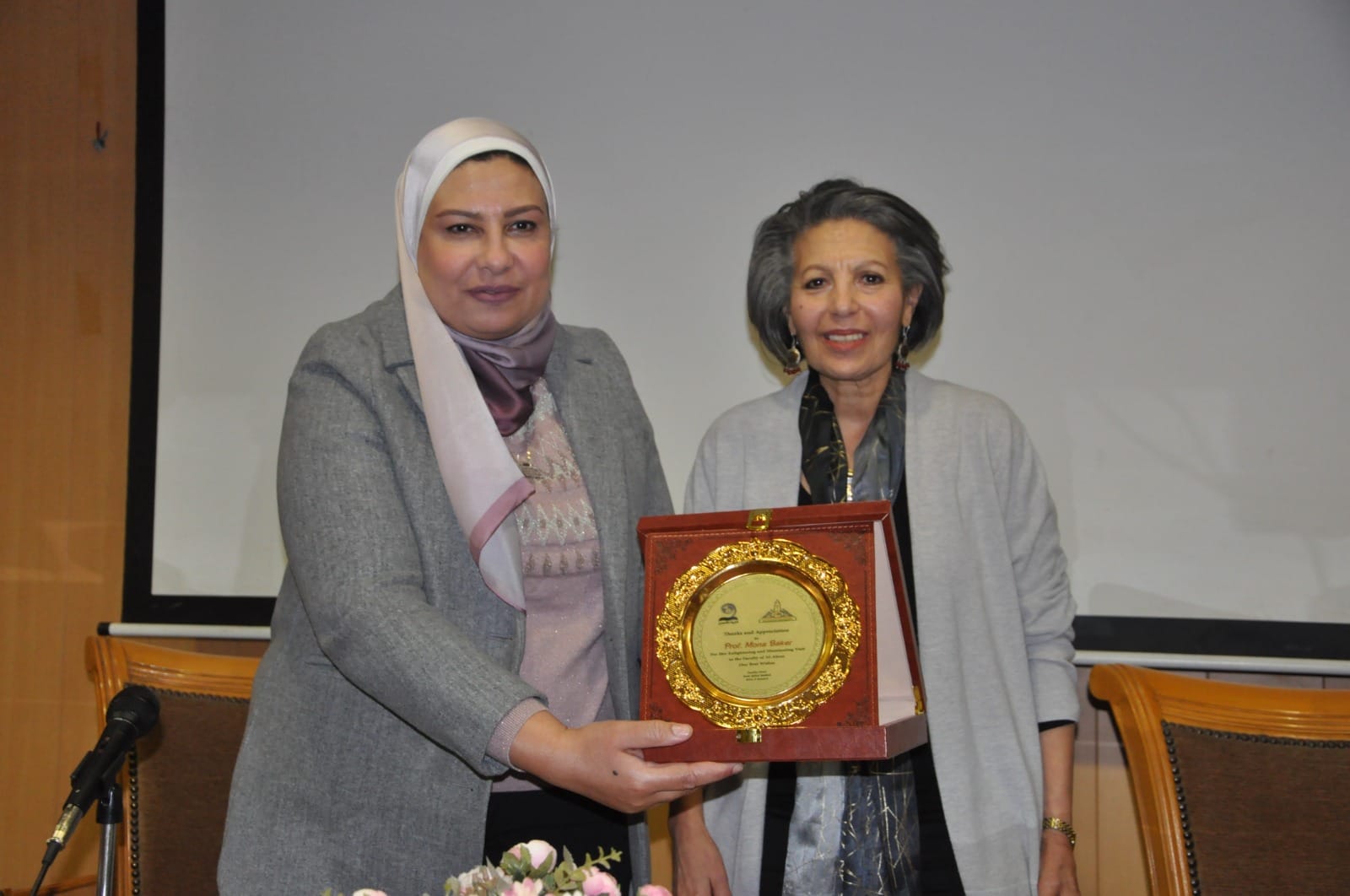 |
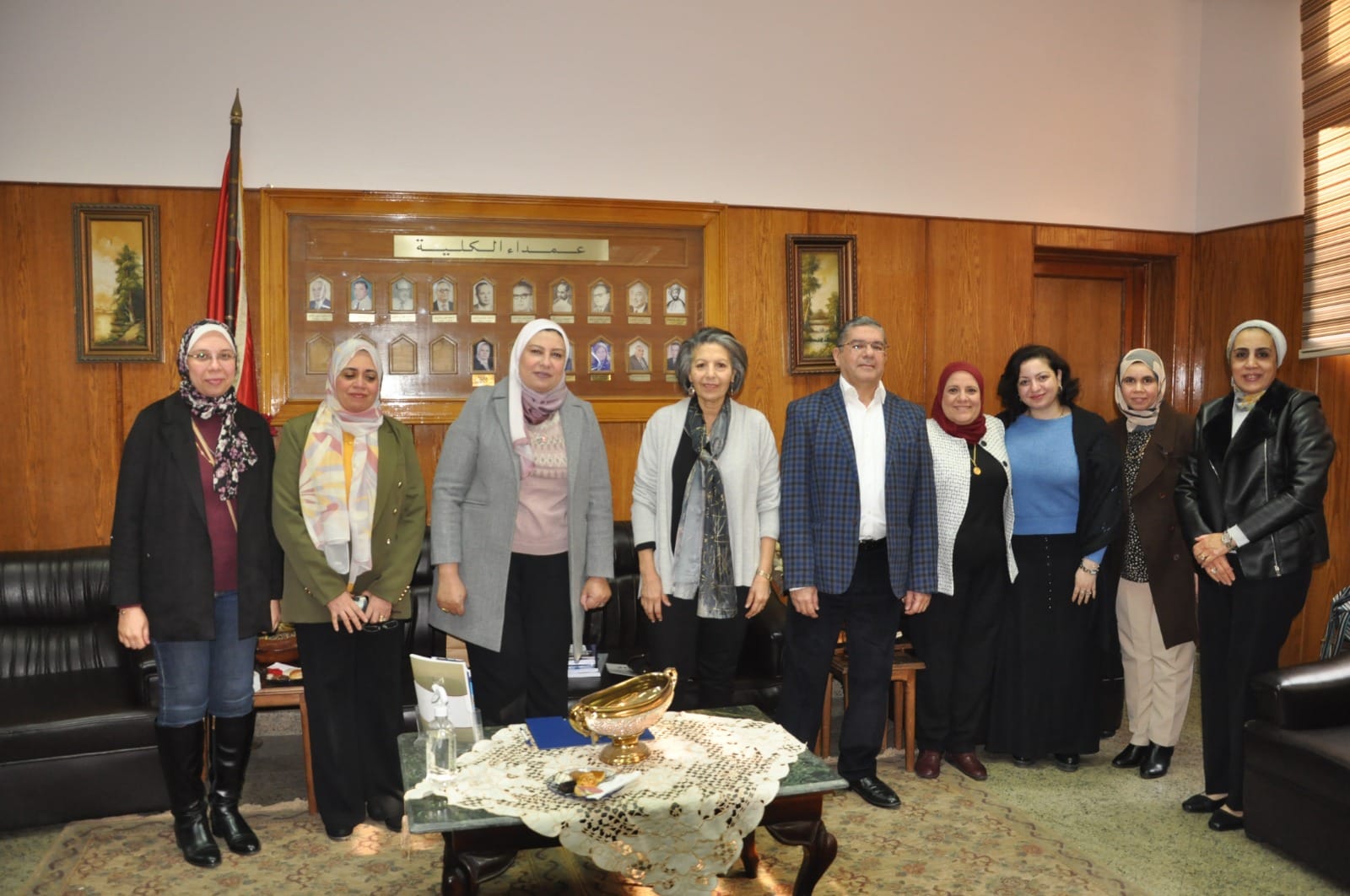 |
During her opening speech, Prof. Salwa Rashad, Dean of the Faculty, emphasized the importance of such lectures given by international experts to the Faculty’s students, whether at the graduate or undergraduate level. Her Excellency reviewed the CV of Prof. Mona Baker, who is considered one of the most important scholars of the modern era in the field of linguistics and translation. Dr. Mona Baker founded the Center of Translation and Cultural Studies at the University of Manchester in England, which she directs and serves as Vice President of the International Society for Translation and Multicultural Studies and a visiting professor at the University of Hong Kong in China, Middlesex University in the United Kingdom and the University of Oslo in Sweden. In 2011, she received the King Abdullah International Prize for Translation.
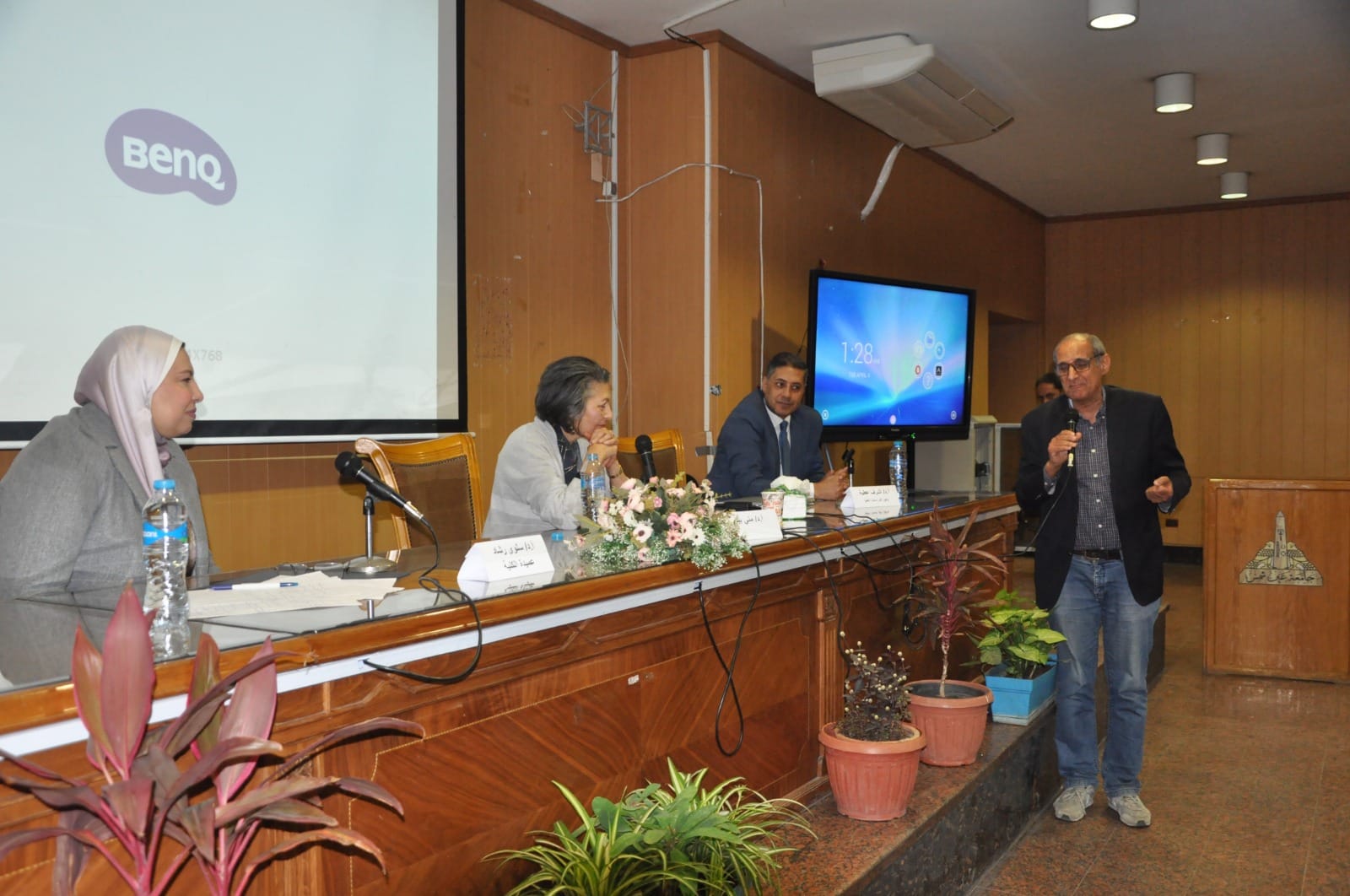 |
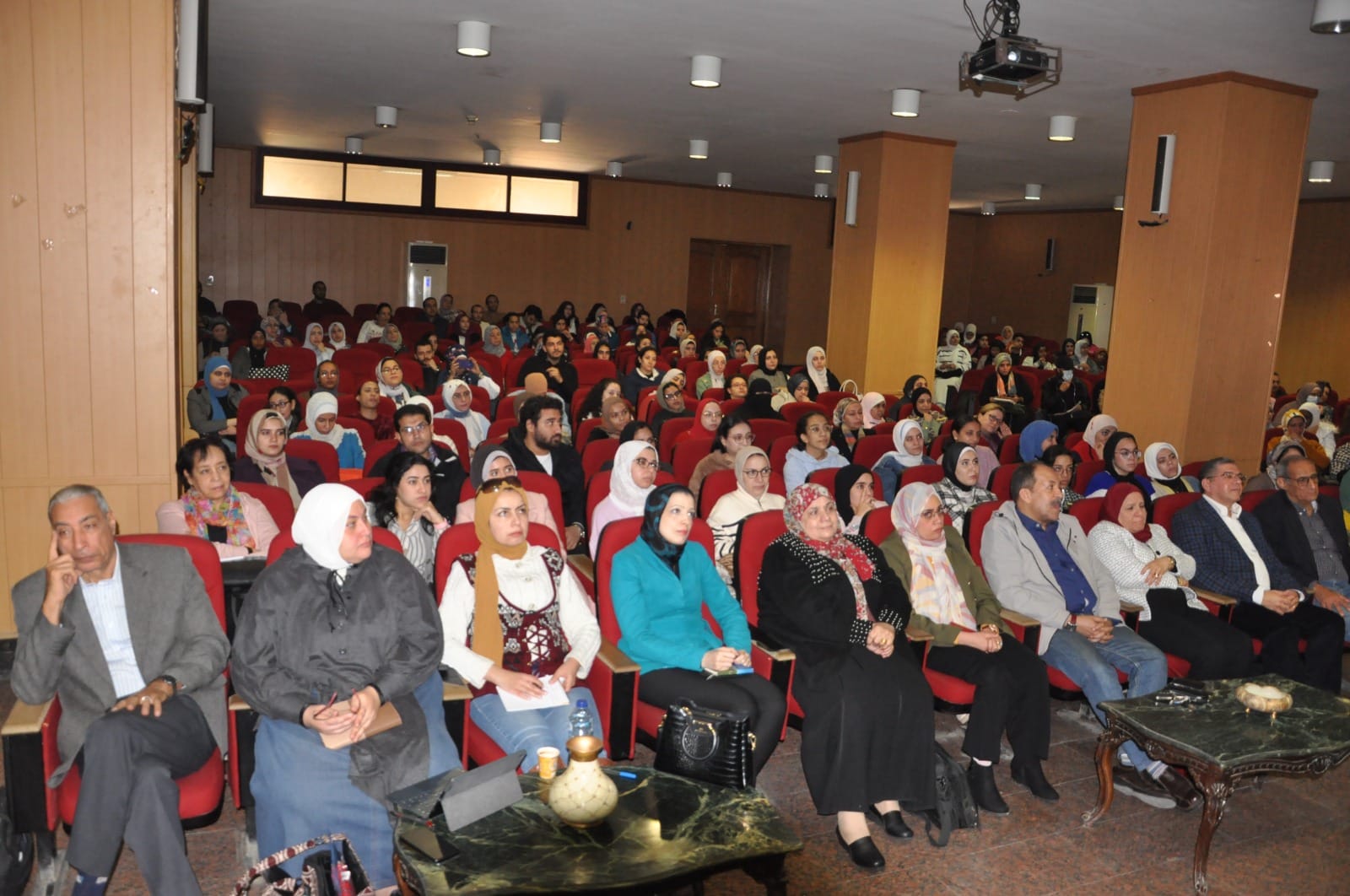 |
For his part, Prof. Ashraf Attia, Vice Dean of the Faculty for Graduate Studies and Research, noted that Dr. Mona Baker’s visit to the Faculty of Al-Alsun, Ain Shams University, is an exceptional event because of the great scientific and academic value that her sovereignty represents at the global level in the field of translation studies and theories. Dr. Mona Baker has laid the foundations and modern approaches for translation theories. Translation, and has many books and studies in the field of translation, the most important of which are: Critical Readings in Translation Studies, Routledge Encyclopedia of Translation Studies, Translation and Context, Text and Technology, Translators on the Battlefield: Stories and Narrators, The Ethics of Retelling, and Reframing Conflict in Translation, Translation and conflict, linguistic and cultural studies, and other books and works specialized in translation studies.
During the lecture presented by Prof. Mona Baker, Professor of Translation Studies at the University of Oslo, reviewed several topics about Gérard Genette’s model of textual collocations, the role of textual collocations in translation studies, and examples of these collocations in different types of media such as the Internet, audiovisual translation, and drama translation.
The lecture discussed the five main features of text pluralism, such as textual overlap, or what is known in translation studies as the phenomenon of intertextuality, the pragmatic effect of textual accompaniments in the target language, the effect of translated accompanying comments on the message and purpose of the original text, the characteristics of literary genres, and textual overlap for texts of a single literary genre.
The nature of Paratexts includes some characteristics, such as the temporal characteristic, which means the recipient’s preparation prior to the appearance of the book or comments subsequent to its publication. The physical characteristic of the accompanying text, whether written or oral, photographed or drawn; The pragmatic property of the text means its impact on the recipient, regardless of his/her background. The functional characteristic, which means the subordination of the accompanying text to the original text, hence Genette’s (1997) model deals with translated texts as textual companions subordinate to the original text.
Dr. Mona Baker also discussed some of the drawbacks and weaknesses of Genette’s model, the most important of which are its limitation to literary works and books, its failure to address non-printed media, its setting of dividing boundaries between the original text and the accompanying text, and the possibility of its application being limited to the idea of a single author.
At the conclusion of the lecture, an open discussion began with the audience of professors, researchers, and specialists in the fields of translation about the topic of the lecture and the most important research issues that translation studies are currently addressing.


.svg)

